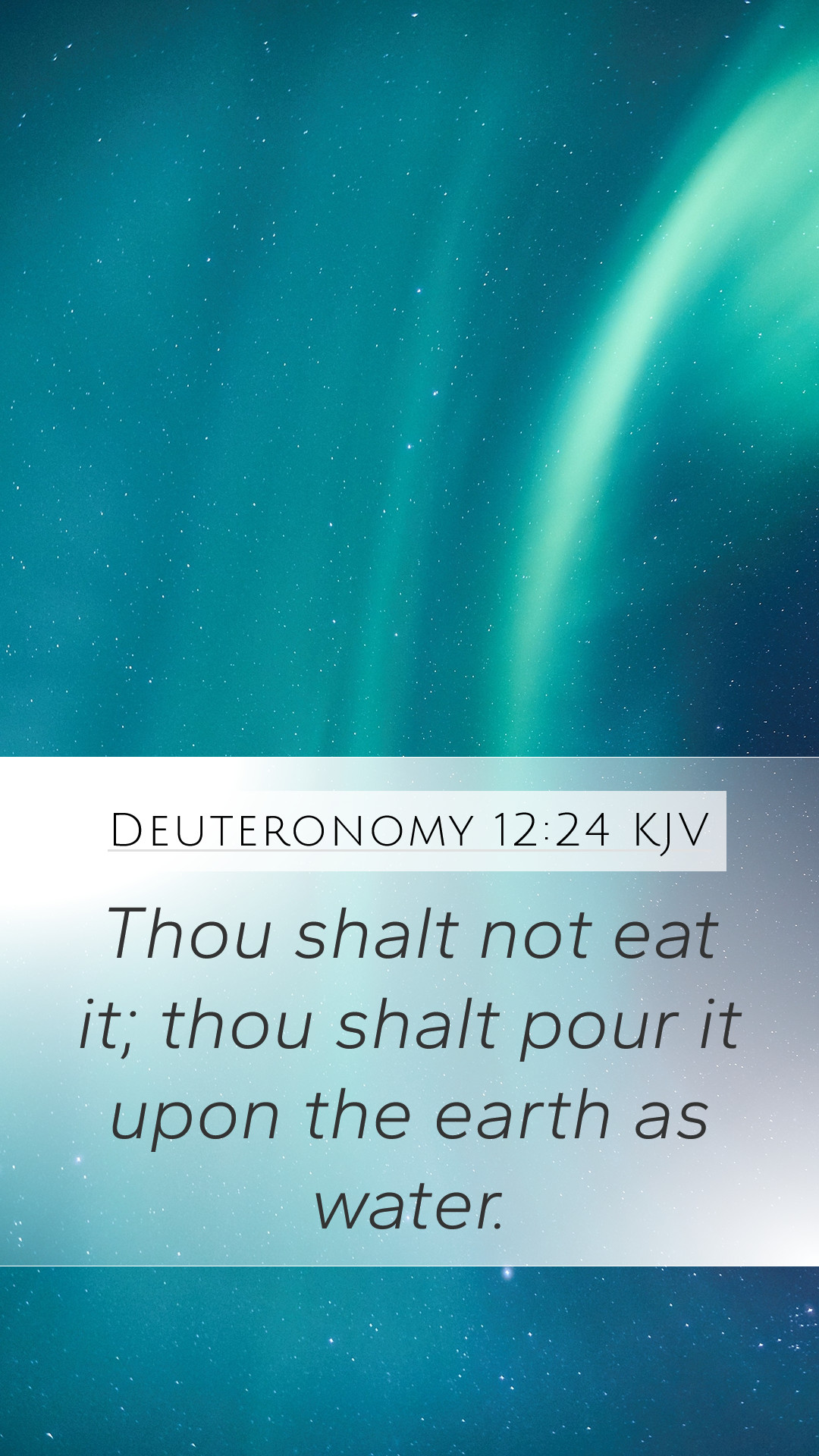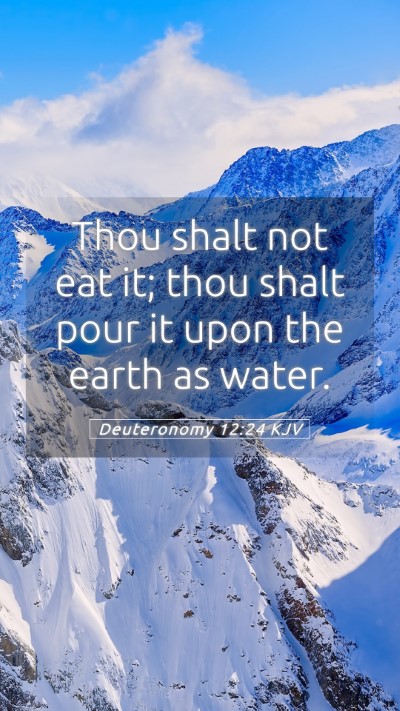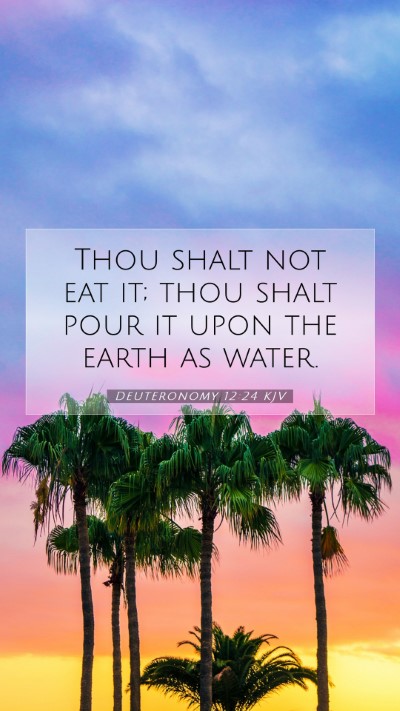Understanding Deuteronomy 12:24
Deuteronomy 12:24 states, "You must not eat the blood; you must pour it out on the ground like water." This verse presents significant theological and moral implications. Below is a comprehensive analysis based on public domain commentaries including insights from Matthew Henry, Albert Barnes, and Adam Clarke.
Bible Verse Meaning and Context
The command against consuming blood is deeply rooted in the Old Testament law, highlighting the sanctity of life, as blood is seen as the life-source of a creature. This directive is foundational in understanding the principles of sacrifice and atonement within Biblical tradition.
Theological Insights
- Matthew Henry's Commentary: Matthew Henry emphasizes that the blood represents life, and thus eating it would signify disregarding God's design for life and sacrifice. He asserts that God calls His people to respect the divine regulations regarding sacrifices and offerings.
- Albert Barnes' Commentary: Barnes elaborates that this prohibition serves to distinguish Israel from pagan practices, promoting a unique identity based on reverence for God’s covenant. He notes the importance of purity in worship and the acknowledgment of God's sovereign authority over life.
- Adam Clarke's Commentary: Clarke adds that this law reflects a deeper spiritual truth: the life is sacred, and this principle foreshadows the atonement through Christ. He encourages readers to see this command as more than a ritual, urging them to recognize the broader implications of respecting life.
The Purpose of the Command
Understanding this verse requires knowledge of ancient Near Eastern practices and the cultural distinction between Israel and its surrounding nations. The avoidance of blood consumption is not only a dietary law but also an ethical guideline that points towards reverence for life.
Connections to Sacrificial Rituals
The significance of blood in sacrificial rituals cannot be overstated. Hebrews 9:22 emphasizes, "without the shedding of blood there is no forgiveness." This reinforces the importance of blood as a means of atonement, tying the Old Covenant to the New Covenant established through Christ.
Biblical Exegesis and Applications
When analyzing Deuteronomy 12:24, it is essential to consider its applications in contemporary life. The principle of valuing life can be adapted into our understanding of ethical treatments towards both human and animal life today.
Course Instruction Through Observation
- Respect for Life: Emphasizing the intrinsic value of life, this verse highlights responsibilities in ethical decision-making.
- Worship Responsibilities: It teaches that worship comes with obligations and that adherence to God's instructions fosters a deepened relationship with Him.
- Historical Context: Understanding the historical setting of the Israelites is crucial in interpreting the text and applying its lessons today.
Cross References and Further Reading
This verse is related to several other scriptures that deepen its meaning:
- Leviticus 17:10-14: Further explanations about prohibitions concerning the eating of blood.
- Genesis 9:4: God's command to Noah about the sanctity of blood.
- Hebrews 9:11-14: Transitions from Old Testament sacrifices to the ultimate sacrifice of Christ.
Conclusion
Deuteronomy 12:24 serves as a critical reminder of the sanctity of life and the importance of following God’s commands in the pursuit of righteousness. For those engaging in Bible study groups or online Bible study, this verse offers rich Bible study insights and lessons on the significance of obedience and reverence in worship.
Reflection and Discussion Questions
- How can the command against consuming blood inform our views on the sanctity of life today?
- What parallels can we draw between Old Testament laws and New Testament teachings?
- How does understanding the context of this command enhance our Bible verse interpretations?


